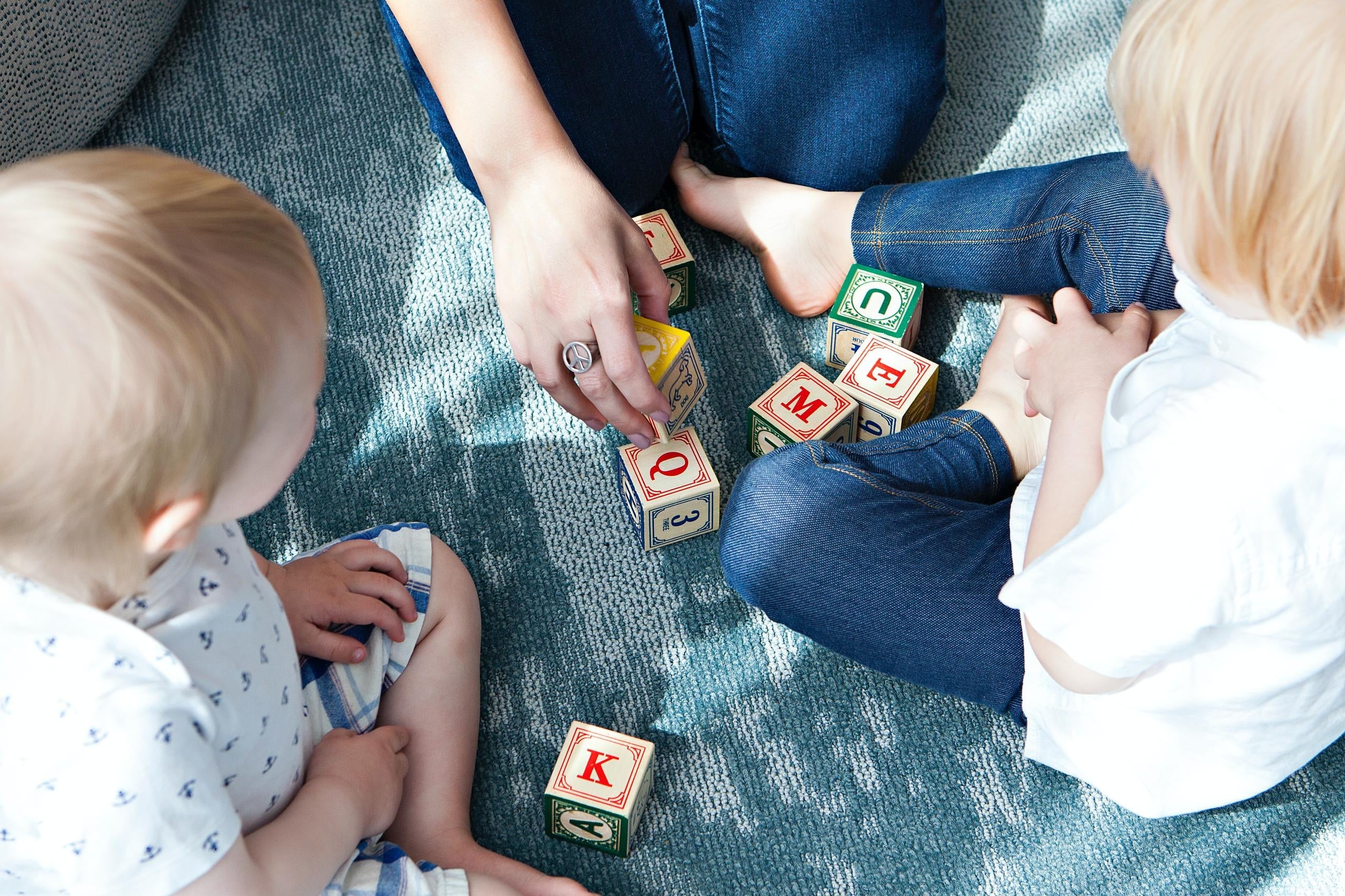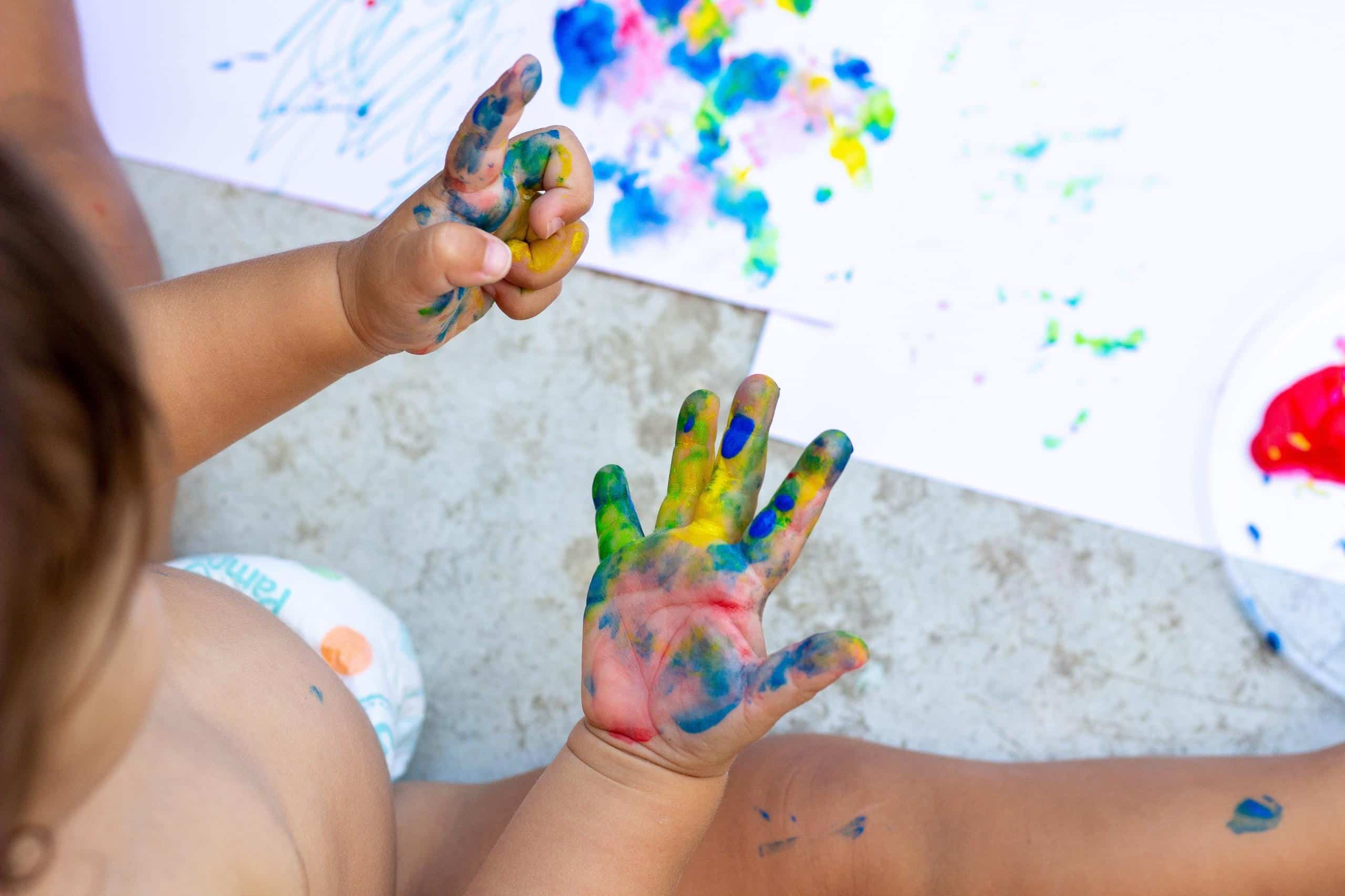
As children get older, the way they interact with other people during play will change. These changes are called “stages of play”.
There are 6 stages of play. They are:
1. Unoccupied
2. Playing alone
3. Onlooker
4. Parallel
5. Associative
6. Cooperative
Each stage is normal.
1. Unoccupied- This is when a baby moves for no reason, such as kicking their legs. This is the first sign of play.🦵🏼You can encourage unoccupied play by letting your child move around. It also helps not to wrap them up while they are awake. 👶🏼🌯🚫
2. Playing alone-When children play alone, they will explore the world around them. They do this by touching 👋🏻 and tasting 👅 things. They will also enjoy hearing their own voice👂🏼You can encourage your child to explore by giving them a variety of safe and age appropriate toys 🧸🪁👦🏼
3. Onlooker-This is when a child watches other children play, and doesn’t join in. This is the first step in learning to play with others. 👀 Onlooker play is a normal and a healthy part of development.🫣👁
4. Parallel- Parallel play is when children play next to each other, but don’t interact. This is a normal part of the learning to play process. This usually happens between 2 and 3 years old. You should not force children to play together. This will come with time.🪀🎮👦🏼🚂👧🏿
5. Associative- Associative play is when children play together, but have different ideas and goals. For example - talking to each other and playing with the same toys, but doing different things. This usually happens between 3 and 5 years old. You can encourage associative play by taking your child to a playgroup. 👧🏽🧒🏼🪆👦🏿👧🏻
6. Cooperative-Cooperative play is when children start working together towards a common goal. For instance, building a block tower. This helps your child to develop social skills. This usually happens between 4 and 6 years old. 🧱🗣👧🏼👦🏻

Materials Needed:
🔹Storage bin or deep baking pan
🔹Ice cubes 🧊
🔹No spill paint containers
🔹Non-toxic washable watercolor paint 🎨
🔹Paintbrushes 🖌
🔹Creativity✨
Have your child(ren) paint the ice with their brushes and different color paints 🌈 Notice what happens with the watercolors as the ice starts melting. The texture starts changing, as do the colors.
When the work of art is complete, either leave it as is, or press a piece of paper on top to make a print 🖼
Then, simply place the ice in the sink to melt. Clean up is a breeze! 🌪
Not ready for clean up yet? This activity is so easy to reuse, until it melts of course 🤣! Rinse off the ice in the sink and start all over AGAIN! 🙃

The first step as caregivers is to help children learn and recognize the different emotions. Feel all the feels in a safe environment, and make sure they know it’s a safe place!
After they can identify the different feelings, caregivers then help children learn how to cope with these emotions in a healthy way.
Building an environment where emotions are discussed regularly, allows children to feel more comfortable turning to their caregivers when they are having trouble coping with particular feelings.
Here are 7️⃣ tips to encourage emotionally healthy children.
1. Talk about emotions daily.
2. Recognize your child's emotions and respond compassionately.
3. Model healthy responses to your own emotions.
4. Help build a "toolkit" of healthy responses when hard emotions strike.
5. Incorporate mindfulness activities into your routine.
6. Provide experiences to learn and grow.
7. Work to foster empathy and compassion for others.
What are ways you discuss emotions with children? We’d love to hear from you below in the comments👇🏼
Email us, we will get back to you shortly!
Email us, we will get back to you shortly!